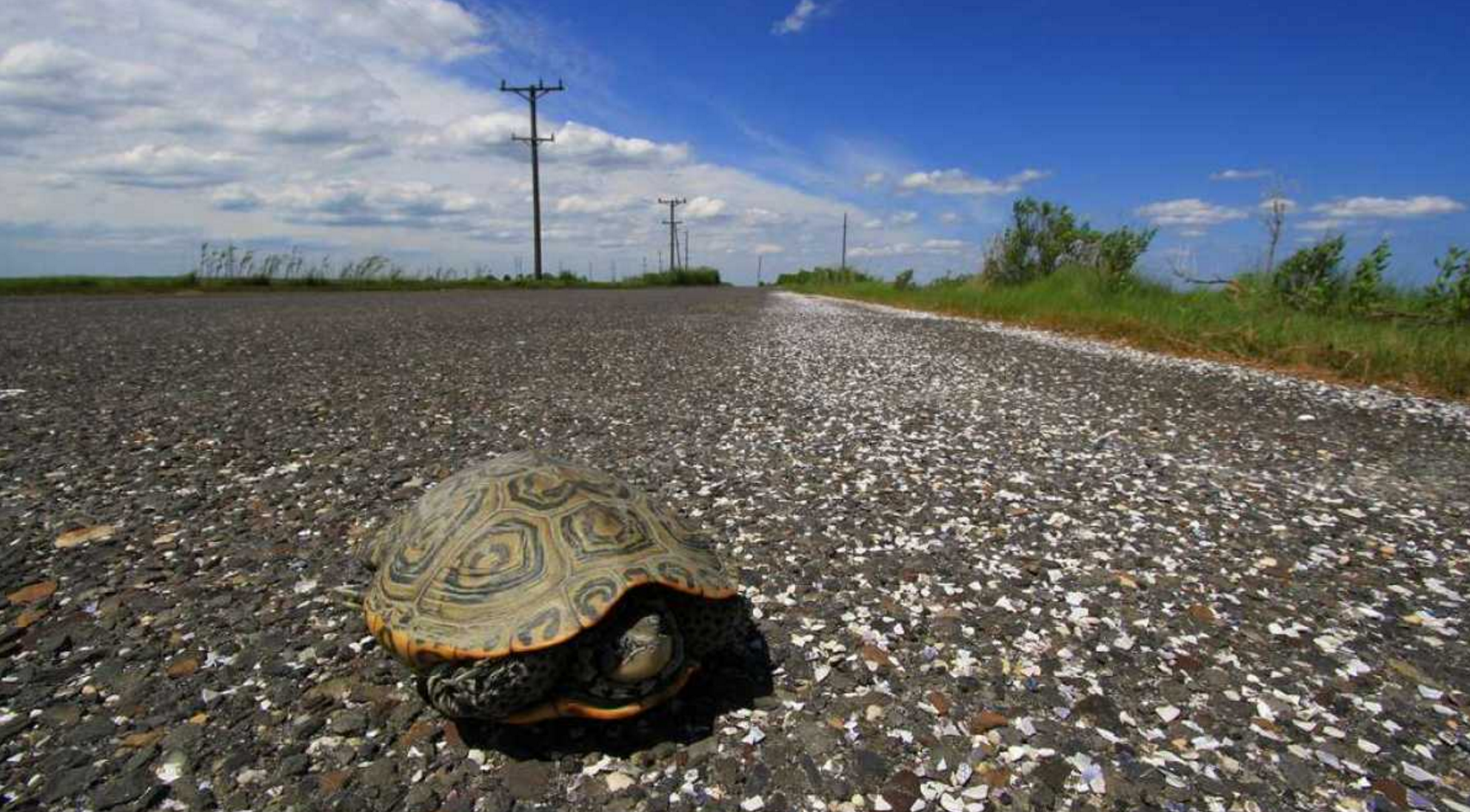Gov. Christie signs diamondback terrapin protection bill

A female terrapin on Great Bay Boulevard in Little Egg Harbor. (Photo courtesy of Ben Wurst/Conserve Wildlife Foundation of NJ)
Gov. Chris Christie has signed a measure to protect a native New Jersey turtle known for living in salty marshes along the coast and sometimes falling victim to auto traffic during the shore’s busy summer months.
The governor on Friday signed the bill into law, making it illegal to hunt or harvest diamondback terrapins. The state Senate in late May gave its final approval to the bill.
“We know that this species, which holds a special place in the hearts of residents of coastal areas as well as visitors, faces many threats and has been declining in numbers for many years now,” New Jersey Department of Environmental Protection Commissioner Bob Martin said in a May release. “Banning all harvesting is the right thing to do to ensure future generations can continue to enjoy seeing diamondback terrapins in the wild.”
The legislation came in response to one recent incident involving a massive amount of diamondback terrapins harvested in the state.
Commercial harvesting had been historically limited with a small numbers of harvesters using hand methods.
But in 2013, one harvester used a commercial crabbing dredge to take more than 3,500 from two locations in South Jersey and sell to an aquaculture facility in Maryland, which an investigation revealed used the catch to raise 14,000 terrapins for sale to overseas markets, the release said.
“That incident was really a wake-up call, making us realize just how vulnerable this species had become,” said New Jersey Division of Fish and Wildlife Director David Chanda. “We have plenty of observational and anecdotal evidence that the species has been in decline. We need to take a step back and get a better handle on the measures that will be needed to restore this species.”
The state has been working with government and wildlife partners to develop management strategies.
Diamondback terrapins, which live exclusively in brackish waters, are found in numerous coastal estuaries along the Atlantic seaboard, including the Barnegat Bay, Great Bay, and along the Delaware Bay and its extensive wetland areas.
They face numerous challenges, including predation, habitat loss, drowning in crab traps, becoming pets, and getting struck by cars.
During the nesting season in early summer, Conserve Wildlife Foundation of New Jersey staff and volunteers educate the public on how to protect the species and conduct “patrols” in South Jersey coastal areas to help reduce mortality due to car strikes.
Christie says the law “will help to ensure the species remains a feature of our natural landscape for generations to come.”
—————————————————————-
The Associated Press contributed to this report.
WHYY is your source for fact-based, in-depth journalism and information. As a nonprofit organization, we rely on financial support from readers like you. Please give today.

